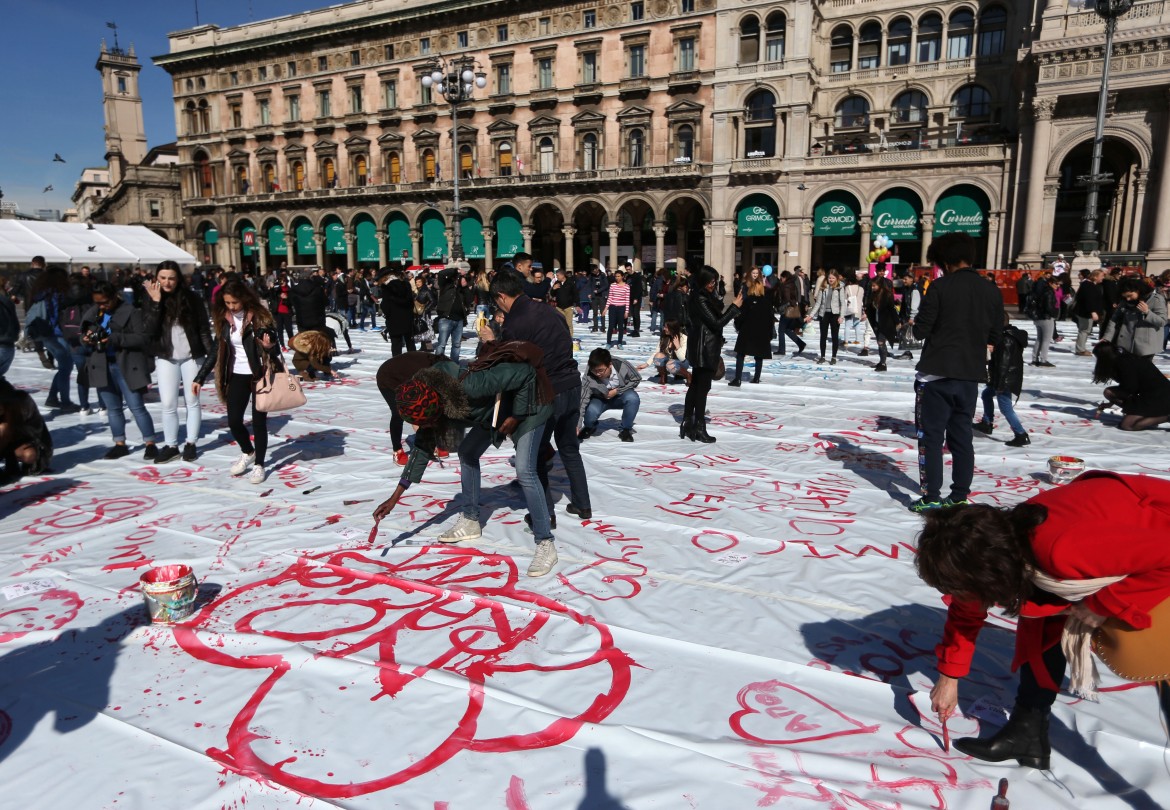Research
Italy paints a black picture of violence against women
One out of five women are victims of abuse, rape or attempted rape. Psychological abuse affects four women out of 10.

A high number of women have suffered degrading and humiliating sexual acts, unwanted relationships and experienced violence, abuse or serious physical harassment such as rapes or attempted rapes. Twenty-one percent of Italian women, more than 4.5 million, have suffered such injustices throughout their lives.
More than one million have been victims of the most severe crimes: 653,000 women were raped, while 746,000 have suffered attempted rape. In 13.6 percent of the cases, the perpetrators of gender violence are the partners and former partners of these women between the ages of 16 and 70. The latest case happened on Tuesday in Borgo Vercelli, where a woman was run over and then stabbed by her former husband.
Among the women abused by their partners, 90.6 percent were raped; 79.6 percent suffered attempted strangulation, suffocation and burns; and 77.8 percent received slaps, punches, kicks and bites. In 1.5 percent of beating cases, the victims suffered permanent damage. Among the wives and girlfriends victims of violence, 37.6 percent reported injuries or lesions, while 21.8 percent suffer from recurrent pain. Not even pregnancy stops the abuse — actually in 7.5 percent of cases it is the source of the man’s wrath.
The Italian statistics bureau Istat presented this terrible photograph of Italian society Tuesday at the conference “Violence against women: data and tools for the evaluation of gender violence.” For researchers, it is a “broad, widespread and polymorphous phenomenon, which seriously affects daily life.”
According to Istat, the peaks of violence are often accelerated by psychological abuse, a state of subjection that affects four out of 10 women: 40.4 percent (over 8.3 million women) are victims of psychological violence, for example by devaluation or submission. If about a third of women have suffered a form of physical or sexual violence in their lives, for most the “asymmetry of power” can lead to severe devaluation, limitation, or physical, psychological and economic control. This 40.4 percent, more than 8.3 million, were verbally abused so severely that it caused serious damage to the development of their personalities; one in four has difficulty concentrating and suffers from memory loss.
“Economic violence” within couples plays a role. It affects 4.6 percent of women in a country where mostly males are employed. In Italy in 2015, the level of employment among women in the ages between 20 and 64 stood at 50.6 percent; among men, it was 70.6 percent. Furthermore, the pay gap between men and women is 16.3 percent.
On March 8, Istat also released data on women victims of stalking (16.1 percent). They suffered from harassing messages to pressing demands on dates or unwanted attention to the most severe forms: 9.3 percent are victims of abusive comments on social networks or unauthorized dissemination of photos and video online; 13 percent suffer direct threats or threats to children or relatives; 75.7 percent of women victims of stalking are followed, spied on or blackmailed.
“There are symptoms before we get to the brutal violence,” said Maria Teresa Amici, undersecretary to the prime minister. “And this starts in school. The regression in relations between the sexes in Italian schools is impressive.”
The deputy leader of the Democratic Party in the House, Chiara Gribaudo, added that “we cannot continue acting meekly with the excuse of avoiding provocation. Only information can enter the houses, and RAI (public TV station) has not given a good example lately. Public TV must be directly involved in the writing of programming.”
This was a direct reference to Paola Perego’s show, which was cancelled after the episode dedicated to Eastern women. It focused on prevention policies and the Pia Locatelli anti-violence centers, leader of the Socialist Party in the House and chairman of the Human Rights Committee. These centers are often severely underfunded.
Originally published at https://ilmanifesto.it/violenza-contro-le-donne-il-quadro-nero-dellistat/ on 2017-03-29
